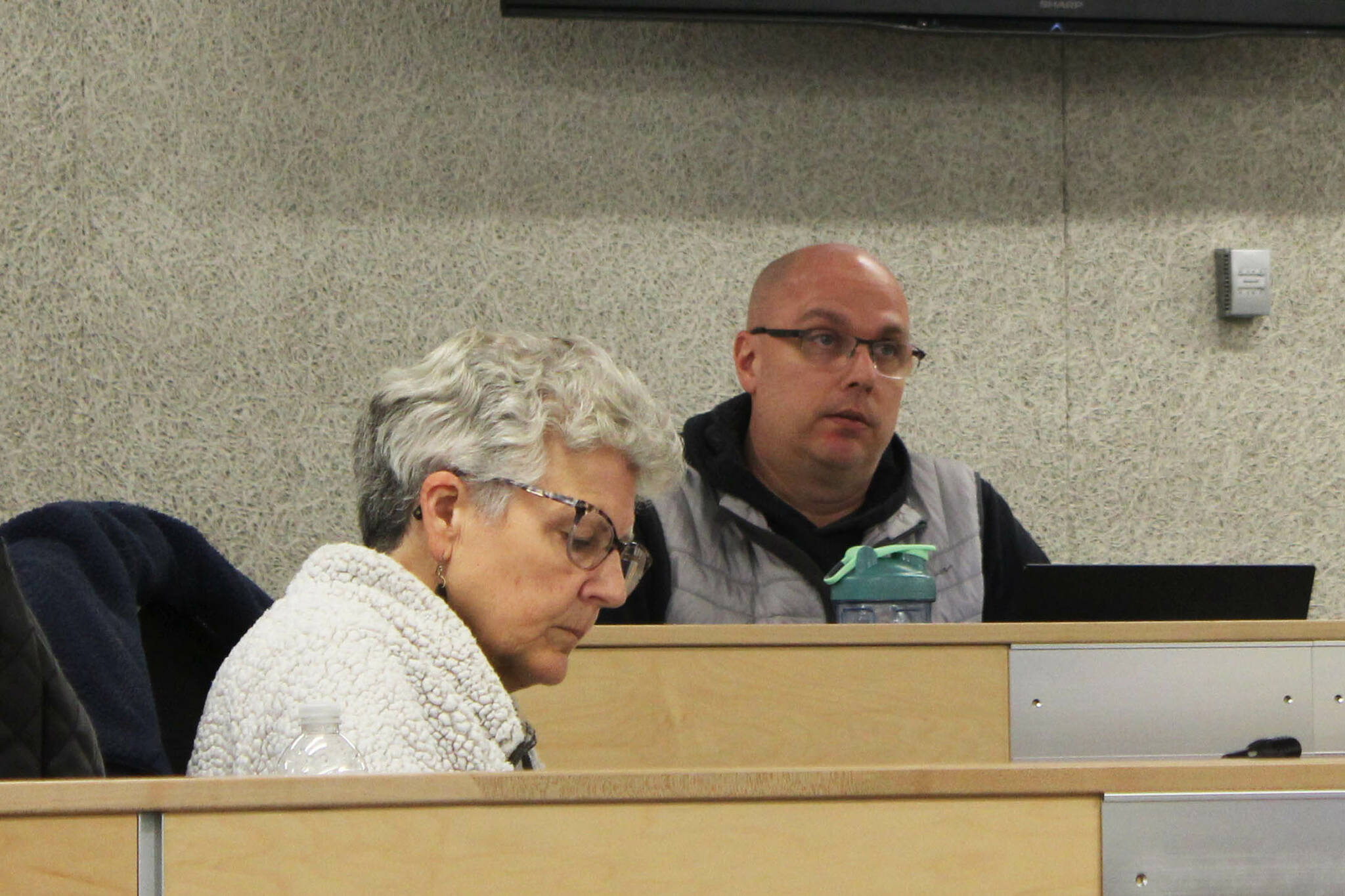The temporary committee of the Kenai Peninsula Borough School District’s Board of Education tasked with exploring a possible four-day school week asked district administration to move forward with the idea and create a plan that can be brought to the community for input and consideration.
That committee delivered their final recommendations to the board during their last meeting on July 1.
Board President Zen Kelly explained before receiving the recommendation that the committee was tasked with “investigating and researching the benefits and challenges of implementing a four day week in the KPBSD.” They were told to consider questions including how the change will affect costs, quality of life, negotiations, and student attendance and outcomes.
Jason Tauriainen, a member of the board, chaired the committee. He’s repeatedly described a four-day week as a personal interest. The committee also included board member Tim Daugharty; KPBSD Secondary Education Director Tony Graham; KPBSD Human Resources Director Nate Crabtree; and the three heads of the unions representing district staff: LaDawn Druce, Susanna Litwiniak and Pete Swanson.
Reasons to consider moving to a four-day school week, Tauriainen said, include the number of days missed by students in extracurricular activities, savings on substitute teachers, reduced custodial demand, more time for building maintenance and an enhanced offer to potential hires.
Crabtree said there are 41 certified openings that the district is “going to be hard pressed to fill” by the start of the year. He said the potential hiring advantage of offering prospective teachers longer weekends and more time with their families is “worth considering.”
Studies cited by Tauriainen indicate that taking a day off while carefully expanding the other four days can increase student performance. Not extending the time in the remaining four days can cause a drop in performance. He also said studies found an increase in attendance and emotional well-being, a decrease in bullying. Little change was found for sleep, fatigue and achievement.
Much of the focus on dropping teaching on Fridays centers on extracurricular activities.
“Anybody that’s worked in a high school or middle school knows what Fridays are like,” Tauriainen says. “It’s a lot of absences.”
If extracurricular activities are contained to the weekends, including Friday, a greater focus on education can fill the other days. The district’s transportation, he said, freed up from Fridays could be reallocated to help with extracurricular travel.
A major source of savings repeatedly described by Tauriainen and Crabtree during meetings of the committee are in the money theoretically saved by not needing substitute teachers on Fridays alone.
During the presentation, Crabtree shared data depicting the number of staff absences reported for each Friday of the most recent school year. Not all those absences resulted in a sub being brought in and paid, he said. Where “90-plus percent” of teacher absences are filled, far fewer support staff absences are. An average of 125 staff members were gone on any given Friday, with a high of 209 on April 19 and a low of three on Dec. 29 — when most staff were already out for winter break.
Tauriainen said the five-day week is arbitrary — “there’s no real reason why we started with that.” Today, people work varied schedules and aren’t quite so adherent to the five-day work week as they once were.
Child care challenges are a major hurdle to overcome, Tauriainen recognized. Longer days can be difficult for students. He suggested some programming on Fridays for intervention or enrichment to continue offering a place for students to be.
“We felt like there were more pros than cons,” he said. “It seemed like a wise idea to direct admin to make a plan for a four-day school week that meets district needs.”
Once that plan is created, another temporary committee will be formed and tasked with bringing it before staff, students, parents and the wider community for input. Based on the response, a decision would be made whether to change to the four-day week or not.
Erin Pearce, a first grade teacher at Seward Elementary, as well as that school’s site council, administration and staff have expressed interest in being part of a pilot study, Tauriainen said.
Board member Patti Truesdell said she’s supportive of the idea, especially having noticed the issues with absenteeism especially among students who play sports, but worried about the district taking on too much responsibility for providing for students on Fridays.
Member Penny Vadla, similarly, said that she believes it can work, but she’s left with a lot of questions about young students, food insecurity, teacher pay, teacher workload and child care.
“They’re important questions to me,” she said.
Board President Kelly said that he was interested in seeing how the community responded to the possibility — their response should guide them.
“People either love a four-day school week or they hate it,” he said. “Our job is going to be to look out and talk to our constituents and really represent them, regardless of how we may personally feel.”
He also said that he doesn’t think the cost savings are the leading benefit, that they may be entirely negligible. There are benefits he can see for recruitment, retention and for the district’s remote schools.
KPBSD Superintendent Clayton Holland said he initially thought the community would never get behind the proposed change. The data about substitutes shared by Crabtree, though, “spoke volumes.” He said he’s ready to move forward and further consider the idea, but remains concerned that child care systems in the area may not be able to provide for all the young students who might suddenly no longer have a place to be on Friday.
A full recording of the presentation will be available at the school district’s BoardDocs site.
Reach reporter Jake Dye at jacob.dye@peninsulaclarion.com.

